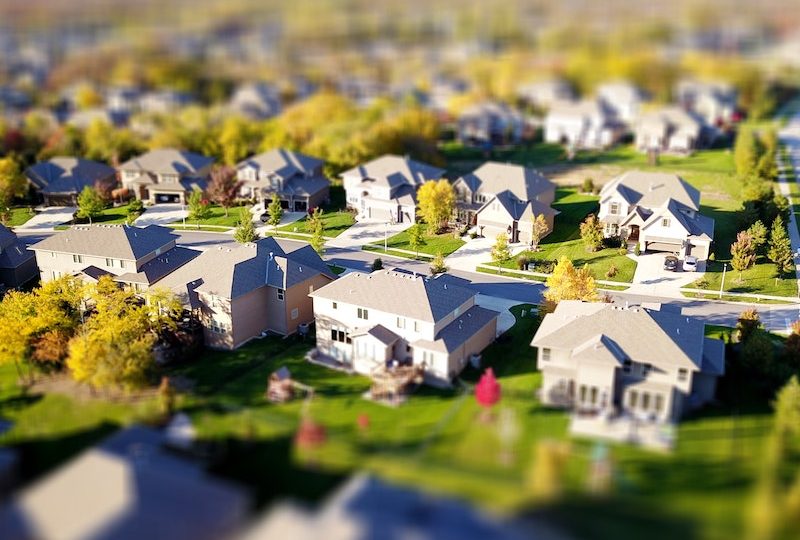In this article, we delve into the multifaceted nature of property value, exploring the numerous factors that influence the worth of a piece of real estate. From location and market trends to property condition and neighborhood amenities, we provide a comprehensive overview of the intricacies of the real estate market, helping you understand what determines property value and how to make informed decisions as a buyer or seller.
 Investing in real estate is a major decision, whether you’re a first-time homebuyer or an experienced investor. One of the most critical factors to consider when making a real estate investment is property value. Understanding what determines the value of a property can help you make informed decisions and achieve the best possible return on your investment.
Investing in real estate is a major decision, whether you’re a first-time homebuyer or an experienced investor. One of the most critical factors to consider when making a real estate investment is property value. Understanding what determines the value of a property can help you make informed decisions and achieve the best possible return on your investment.
In this article, we delve into the multifaceted nature of property value, exploring the numerous factors that influence the worth of a piece of real estate. From location and market trends to property condition and neighborhood amenities, we provide a comprehensive overview of the intricacies of the real estate market.
Location
Location is one of the most significant factors that influence property value. A desirable location can increase a property’s value, while an unfavorable location can decrease it. There are several factors that contribute to a desirable location, including proximity to amenities, good schools, low crime rates, and access to transportation.
For example, properties located in urban areas with access to public transportation, shops, and restaurants tend to have higher property values than those located in remote or rural areas. Similarly, properties located in areas with high-performing schools and low crime rates are more valuable than those in areas with subpar schools and higher crime rates.
Property Condition
The physical condition of a property is another critical factor that determines its value. A well-maintained property with modern amenities will typically command a higher price than a run-down property that requires significant repairs.
Factors that impact property condition include the age of the property, the quality of the materials used in its construction, and the amount of maintenance and upgrades performed over time. Renovations and upgrades can increase a property’s value, while deferred maintenance and neglect can decrease it.
Market Trends
Market trends are another significant factor that influences property value. The real estate market is subject to fluctuations, and property values can rise and fall based on supply and demand.
For example, during times of economic growth, the demand for real estate typically increases, which can drive up property values. Conversely, during times of economic recession, the demand for real estate may decrease, leading to a decline in property values.
Neighborhood Amenities
Neighborhood amenities are another factor that contributes to property value. Properties located in neighborhoods with desirable amenities, such as parks, restaurants, and shopping centers, tend to have higher values than those in neighborhoods without such amenities.
Other factors that impact neighborhood desirability include walkability, access to public transportation, and the quality of nearby schools.
Other Factors
There are several other factors that can influence property value, including zoning regulations, property taxes, and crime rates. Zoning regulations can limit the use and development of a property, which can impact its value. High property taxes can also decrease a property’s value, as potential buyers may be deterred by the ongoing expenses.
High crime rates in a neighborhood can also have a negative impact on property values. Homes located in areas with high crime rates are typically less desirable, and their values may decrease as a result.
Conclusion
In conclusion, understanding the factors that determine property value is critical to making informed decisions in the real estate market. Location, property condition, market trends, neighborhood amenities, and other factors all contribute to a property’s value.
By considering these factors when making a real estate investment, buyers and sellers can maximize their return on investment and make informed decisions. Whether you’re a first-time homebuyer or an experienced real estate investor, understanding the complexities of property value is essential to achieving success in the real estate market.
When buying a property, it’s important to consider not only the current value but also its potential for growth in the future. Factors such as anticipated developments in the area, changes in zoning regulations, and economic trends can all impact a property’s value over time.
Similarly, when selling a property, it’s important to take into account the current market trends and the condition of the property. Upgrades and renovations can increase a property’s value and make it more attractive to potential buyers.
Ultimately, the value of a property is determined by a complex interplay of numerous factors, many of which are beyond the control of buyers and sellers. However, by understanding these factors and taking them into account when making real estate decisions, investors can maximize their chances of success in the real estate market.
Advice for Buyers and Sellers
For buyers, it’s important to consider the long-term potential of a property when making a purchase. While it may be tempting to focus solely on the current value of a property, it’s essential to consider factors such as location, property condition, and neighborhood amenities that can impact the property’s value over time.
Similarly, sellers should take the time to prepare their property for sale, making necessary repairs and upgrades to increase its value. By investing in a property before putting it on the market, sellers can increase their chances of attracting potential buyers and achieving a higher sale price.
It’s also important for both buyers and sellers to work with experienced real estate agents who understand the complexities of the real estate market and can provide guidance and advice throughout the buying or selling process.
Conclusion
In conclusion, property value is determined by a complex interplay of numerous factors, including location, property condition, market trends, neighborhood amenities, and other factors. Understanding these factors is critical to making informed decisions in the real estate market, whether you’re buying or selling a property.
By taking the time to understand these factors and working with experienced professionals, investors can maximize their chances of success and achieve the best possible return on their investment in real estate.








